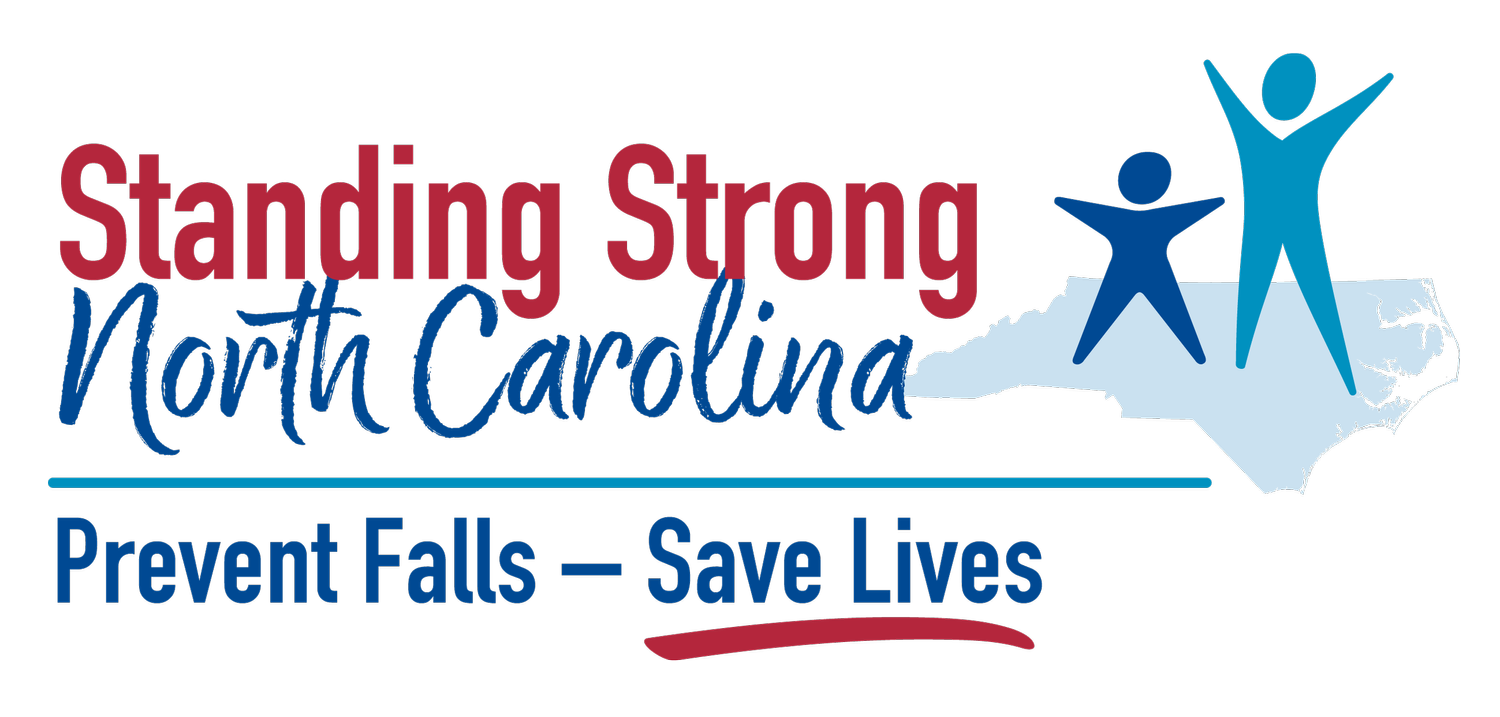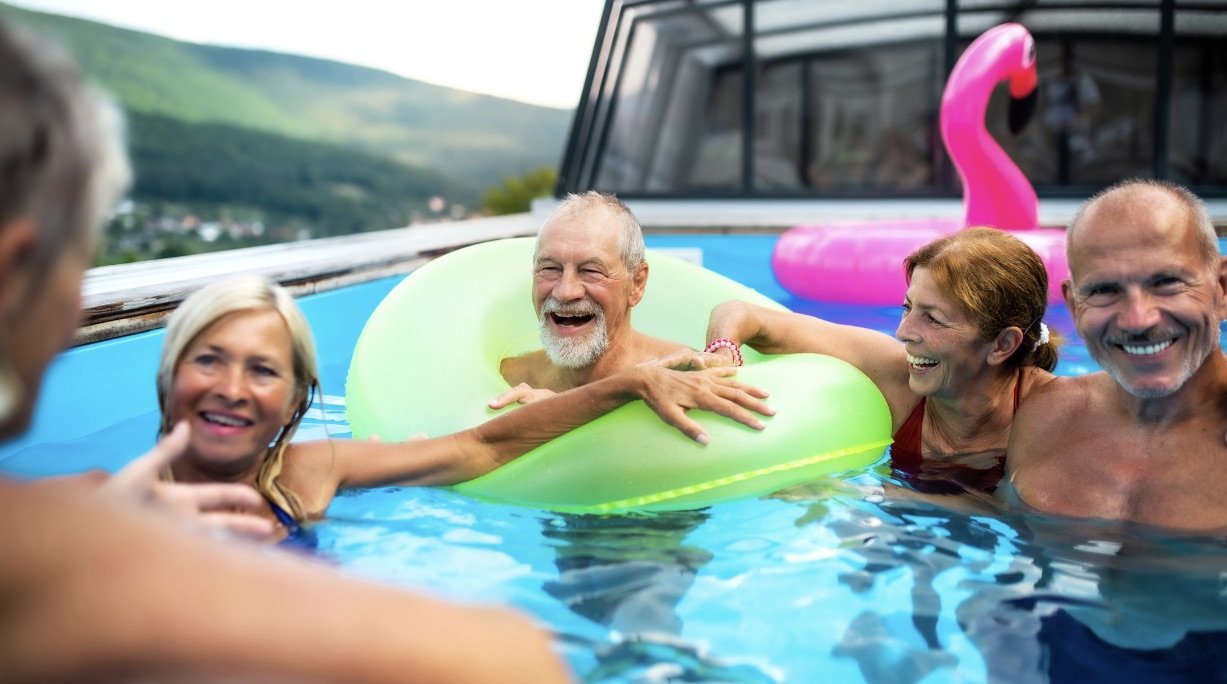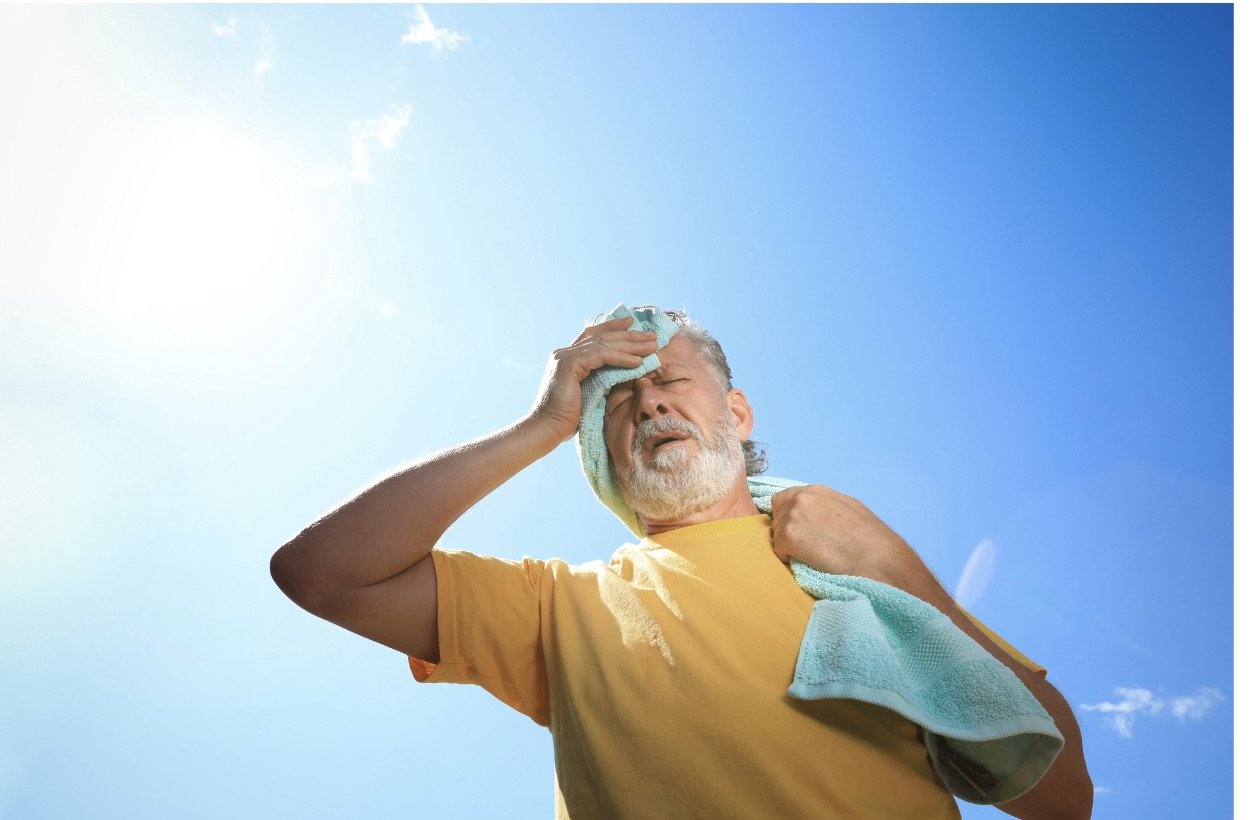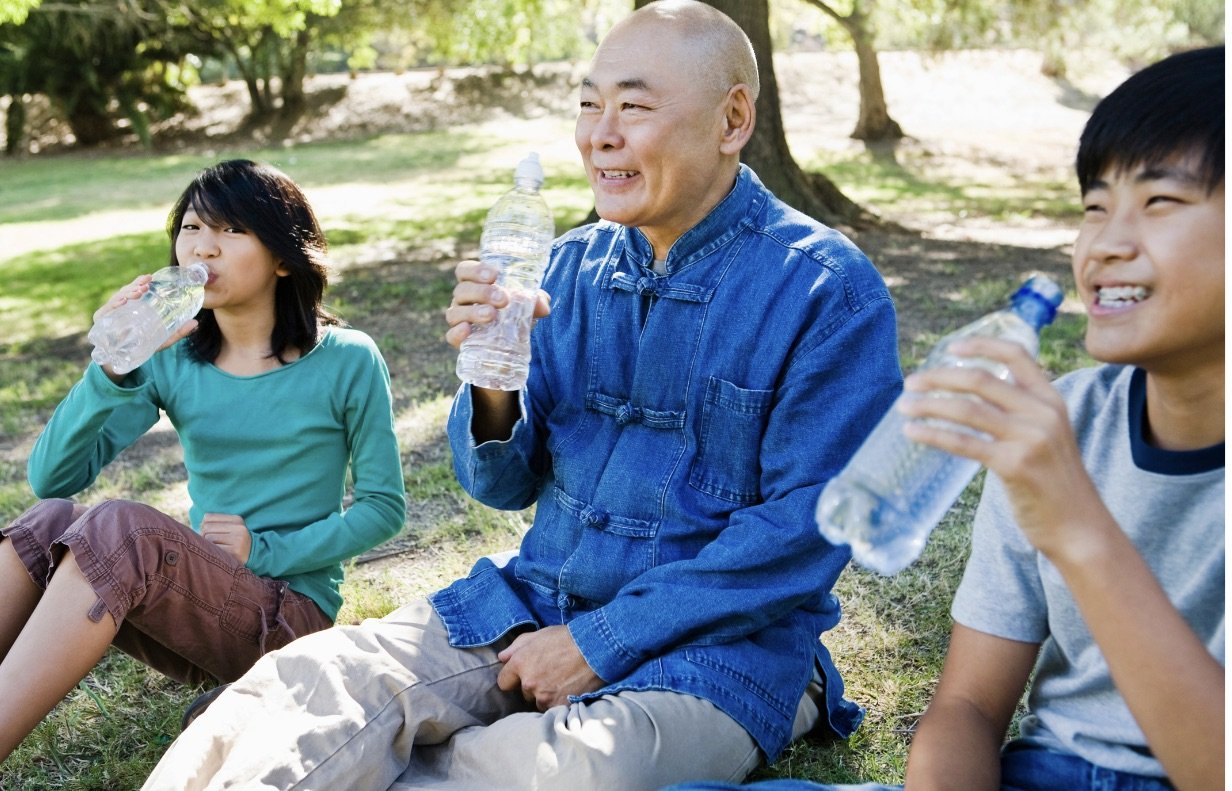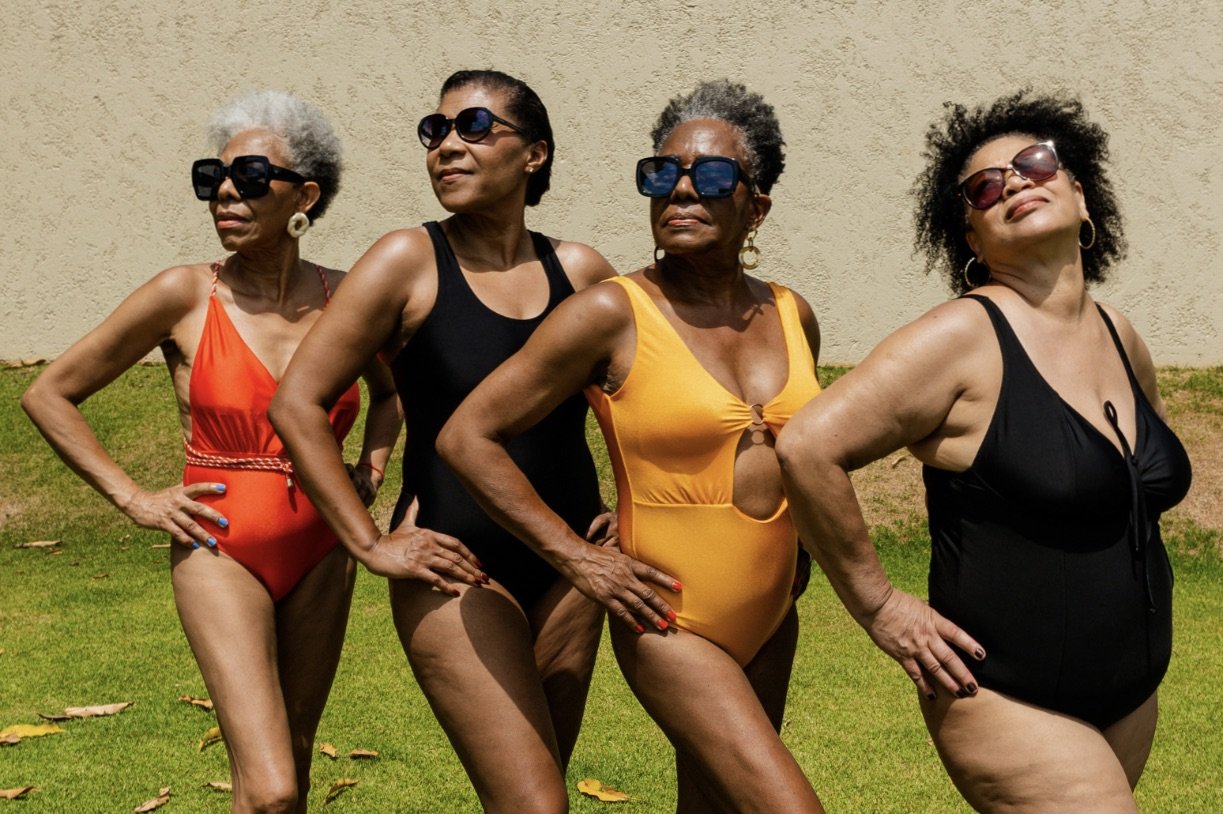10 Must-Know Heat Safety Tips to Stay Balanced in the Heat
Introduction
Summer is finally here which means the North Carolina heat has arrived in full force. When the temperature goes up, so does the risk of falls, especially for older adults. Hot weather can make health problems worse and increase the chance of falling, which can lead to serious injuries. This is really important for adults 55 or better, their families, and anyone working in healthcare or senior living. In this post, we’ll talk about why heat can make falls more likely and share easy tips to stay cool and safe, and how to help someone (or yourself) if you find yourself in a scary situation. Whether you’re an older adult or someone who cares for one, we hope you’ll find helpful advice here to get through the summer safely.
Why are Heat and Fall Risk Important?
As climate change and an aging population create new challenges, heat safety has become a big concern for older adults. Based on data from Climate Central, people over 55 are more vulnerable to more heat-related deaths/injuries than younger adults. Unfortunately, more than 80 percent of the 12,000 heat-related deaths in the United States each year are people over age 60.
As the Earth gets hotter and more people get older, heat-related deaths among older adults are expected to increase. Studies show that even healthy older adults may find it hard to tell when it’s too hot or if they’re dehydrated. This problem is worse for those with cognitive decline, which can make it harder to respond to heat. Research shows that even healthy adults 55+ are less able to sense heat or sweat, and are less likely to feel thirst and seek fluids when compared to younger adults. Older bodies also hold more heat than younger ones because their sweat glands don’t work as well and their hearts don’t circulate blood as effectively. This makes it harder for their bodies to cool down.
Heat illnesses can exacerbate current health conditions and increase fall risk. Understanding what heat can do to the body and how that can impact mobility is important for everyone, especially adults 55 or older and their families. Falls can lead to serious injuries, medical bills, and a loss of independence. Preventing falls helps older adults maintain a better quality of life.
Before we discuss how to combat the heat, it's important to understand heat-related illnesses and identify who is most at risk. According to the National Institute of Health, heat-related illnesses include:
Heat Syncope (also known as orthostatic dizziness)
Symptoms: Sudden dizziness that can happen when you are active in hot weather. This can increase your risk of falls and injury.
What to Do: Find a cool place, put your legs up, and drink water.
Heat Cramps
Symptoms: Muscles feel tight or spasm, and skin may feel moist and cool, but body temperature and pulse usually stay normal.
What to Do: Stop physical activity, rest in the shade or a cool building, drink water and sports drinks with electrolytes, and avoid alcohol and caffeine.
Heat Edema
Symptoms: Swelling in ankles and feet due to heat, mild pain may occur.
What to Do: Put your legs up to reduce swelling. If swelling doesn’t go down quickly, check with your doctor.
Heat Rash
Symptoms: Red clusters of small blisters that look like pimples, itchy skin, or “prickly” tingling pain.
What to Do: Keep the area dry, use powder to soothe the rash, and stay in cool areas.
Heat Exhaustion (The most common health-related illness and cause of death)
Symptoms: Thirst, dizziness, weakness, uncoordinated, nausea, heavy sweating, normal body temperature but cold and clammy skin, and, in some cases, rapid pulse.
What to Do: Find a cool, drink plenty of fluids. If symptoms don’t improve soon, seek medical care. Be cautious because heat exhaustion can progress to heat stroke.
Heat Stroke
Symptoms: Fainting, confusion, acting strangely, not sweating even when it’s hot, dry, and flushed skin, strong and rapid pulse or slow and weak pulse.
What to Do: Seek medical help immediately, move to a cooler place (shade or indoors), lower body temperature with cool clothes, a cool bath or shower, and fans.
What increases the risk of heat-related illnesses for older adults?
Health problems such as cardiovascular, lung, or kidney disease
Changes in the skin caused by normal aging
Any illness that causes weakness or results in a fever
Taking drugs such as diuretics, sedatives, tranquilizers, and some heart and high blood pressure medicines may make it harder for the body to cool itself
Being on several prescription drugs at the same time
Having obesity, overweight, or underweight
Drinking alcoholic beverages
Living in places without air conditioning or fans
Becoming dehydrated
5 Ways to Beat the Heat & Stay on Your Feet
Plan your Day & Check the Weather:
It sounds simple, but it's important to check the weather before a nice day out. Visit www.weather.gov, tune in to local radio or TV stations, or check the weather app on your smartphone regularly for forecasts. In addition to the thermometer, pay attention to the heat index, which considers both air temperature and humidity levels to determine what the temperature actually feels like. If you plan to do outdoor activities or exercise, aim to do them during the coolest times of the day (typically early mornings, afternoons, and evenings.)
2. Understand Your Medication and its Risks:
It’s possible that prescribed medications can increase your risk of heat-related illnesses or falls during hot weather. Medications such as diuretics, ACE inhibitors, and Blood Pressure Medication may reduce an individual's ability to sense thirst leading to dehydration. Nonsteroidal anti-inflammatory drugs such as aspirin or ibuprofen, beta-blockers, and laxatives can result in hypotension and reduce cardiac output which increases the risk of fainting and falls. Medications like aspirin can also result in reduced blood vessel dilation and affect one's ability to cope with heat. For the full list of medications and their impact on heat sensitivity, click here.
3. Drink lots of fluids:
The National Council on Aging recommends that a general rule is to take one-third of your body weight and drink that number of ounces in fluids. For example, if you weigh 150 pounds, aim to drink at least 50 ounces, or 6 cups, or water each day. If you feel dehydrated or need to switch up the flavor of water, drinks with electrolytes (Gatorade), or powder electrolyte packets (Liquid IV) are great options for hydration too. However, it’s best to talk with your doctor to determine how much water you should drink daily. Certain medications can make you more prone to dehydration.
4. Finding Cool Spaces:
Spend as much time as possible in air-conditioned spaces. If you don’t have an air conditioner, find a place that does! For example, visit the senior center to participate in meals, programs, and nice cool air, walk around indoor malls, or read a book at the library. If you do not have air conditioning, North Carolina has a Weatherization Assistance Program focused on helping older adults, the disabled, families with children, high-energy users, and the energy-burdened. Find more information about the North Carolina Weatherization Assistance Program here. Click here to find your local senior center.
5. Swap out piping hot water for cooler water:
This can significantly help lower your body temperature and provide immediate relief from the heat. Not only does it cool your skin, but it also helps your body’s internal cooling mechanisms work more efficiently. Consider taking multiple cool showers or baths throughout the day to keep your body temperature in check. This practice is especially beneficial during heat waves or after spending time outdoors.
Bonus Tip; Download and print the Health in Aging Hot Weather Safety Tip Sheet to keep in your home to remind you how to beat the heat and stay on your feet this summer!
Stay Cool and Safe: Key Takeaways for Beating the Heat
As the temperatures rise, it’s essential to understand the risks of heat-related illnesses, especially for older adults. We’ve covered various conditions like heat syncope, heat cramps, heat edema, heat rash, heat exhaustion, and heat stroke, as well as the impact of certain medications on heat tolerance. Remember, these conditions can be serious, but with awareness and proactive steps, they can often be prevented.
Here’s a quick recap of what you can do to stay safe in the heat:
Stay Hydrated: Drink plenty of water and avoid alcohol and caffeine.
Dress Appropriately: Wear lightweight, light-colored, and loose-fitting clothing or bathing suits (if appropriate!)
Avoid Peak Heat Hours: Stay indoors during the hottest parts of the day and use fans or air conditioning to keep cool.
Monitor Weather Reports: Pay attention to heat advisories and plan activities accordingly.
Use Mobility Aids and Install Grab Bars: These can provide extra stability and help prevent falls.
Recognize the Symptoms: Knowing the signs of heat-related illnesses can help you seek timely medical attention.
The common thread in all these tips is the importance of staying cool, hydrated, and vigilant. By understanding how heat affects your body and taking proactive measures, you can enjoy a safer, more comfortable summer.
Stay informed, stay prepared, and most importantly, stay cool. Here’s to a healthy and enjoyable season!
Call-to-Action
Ready to learn more about keeping yourself and your loved ones safe in the heat? Read more about Hot Weather Safety on the National Institute of Aging Website. There you will find detailed information about risk levels, exercising in the heat, and recognizing heat illness.
Or, Click here if you would like to kick off this summer by joining a Healthy Aging NC Program.
To stay up-to-date on Standing Strong NC, click HERE to subscribe.
Sources Used for this Article:
Climate Central - Seniors at Risk: Heat and Climate Change (2020)
National Institute of Aging: Hot Weather Safety for Older Adults
By Amber Chapman, NC Center for Health and Wellness
